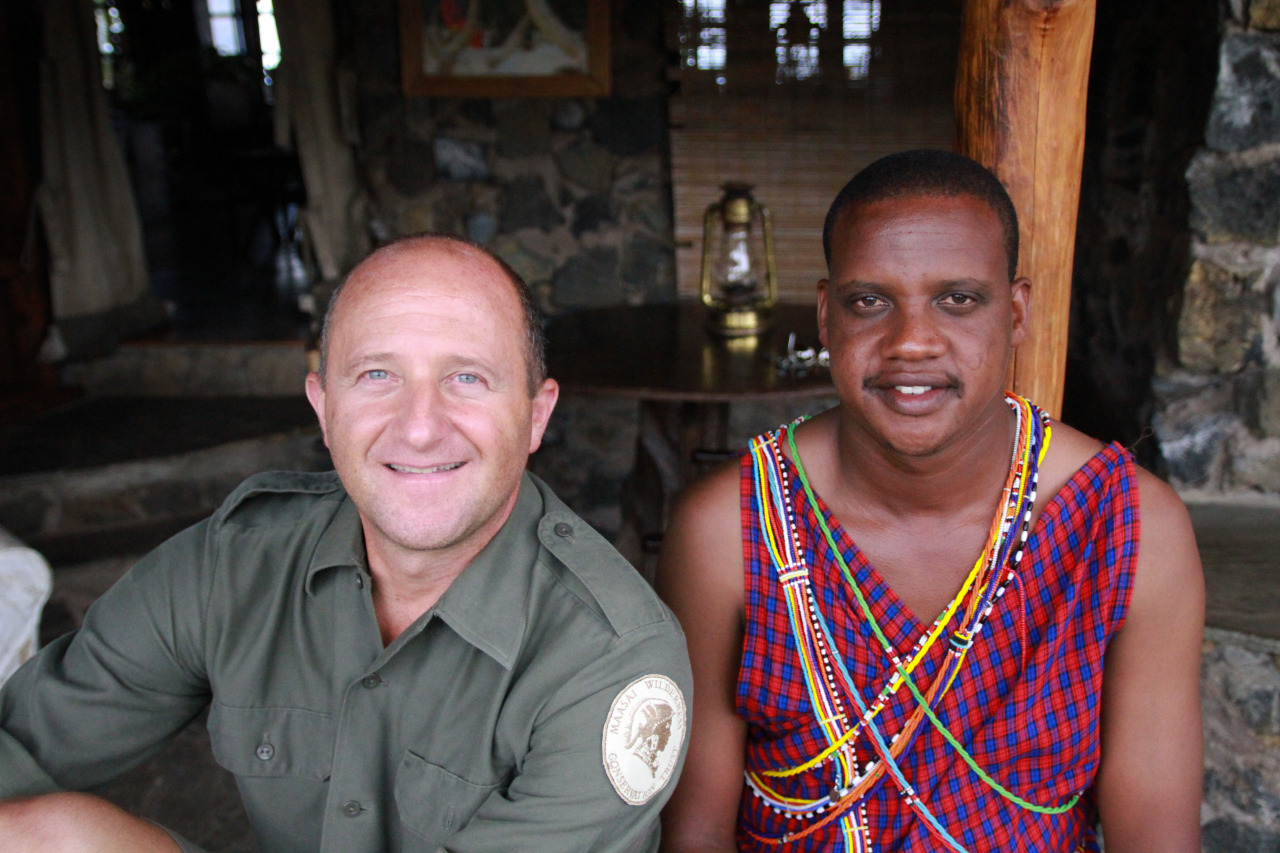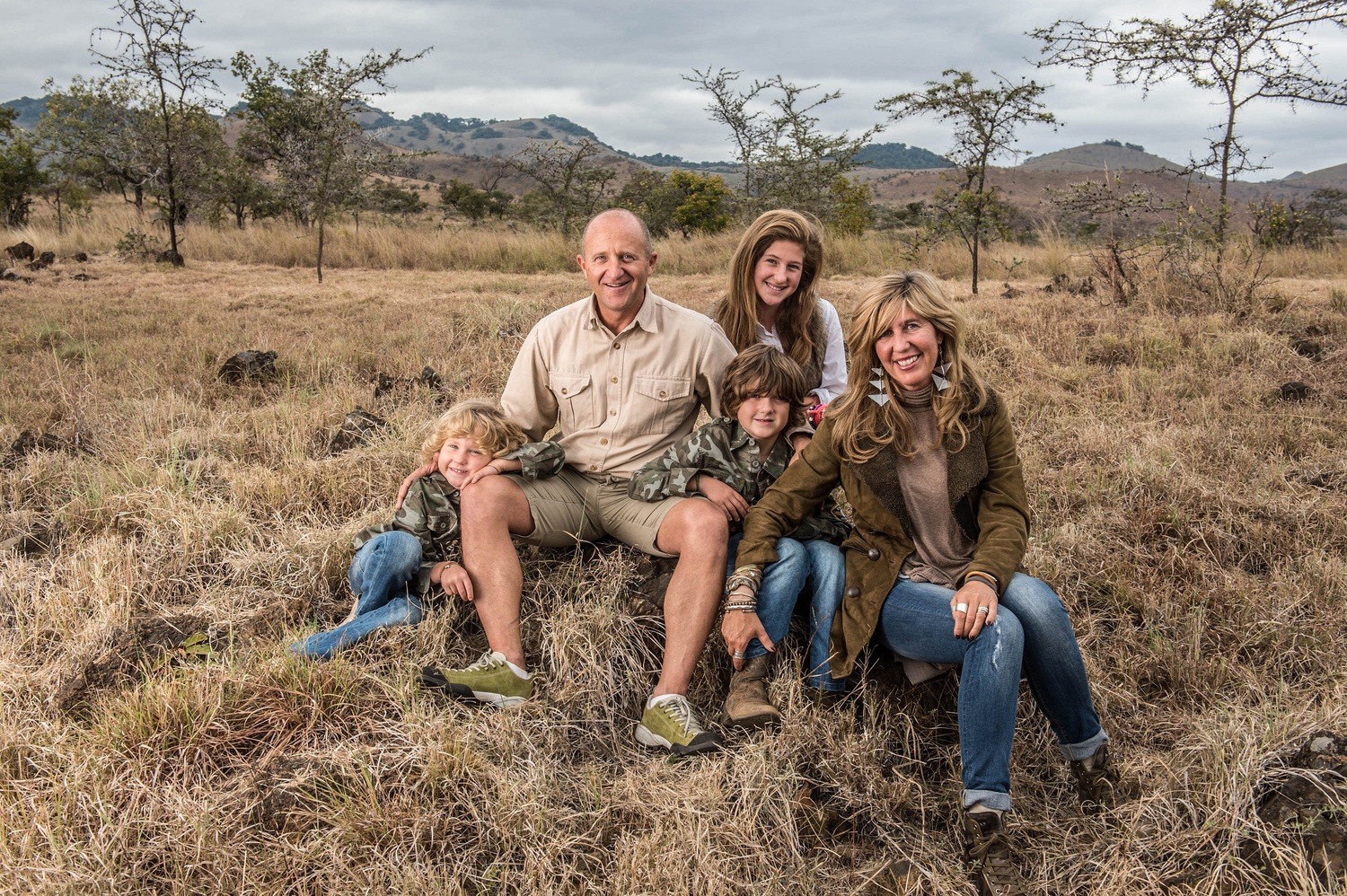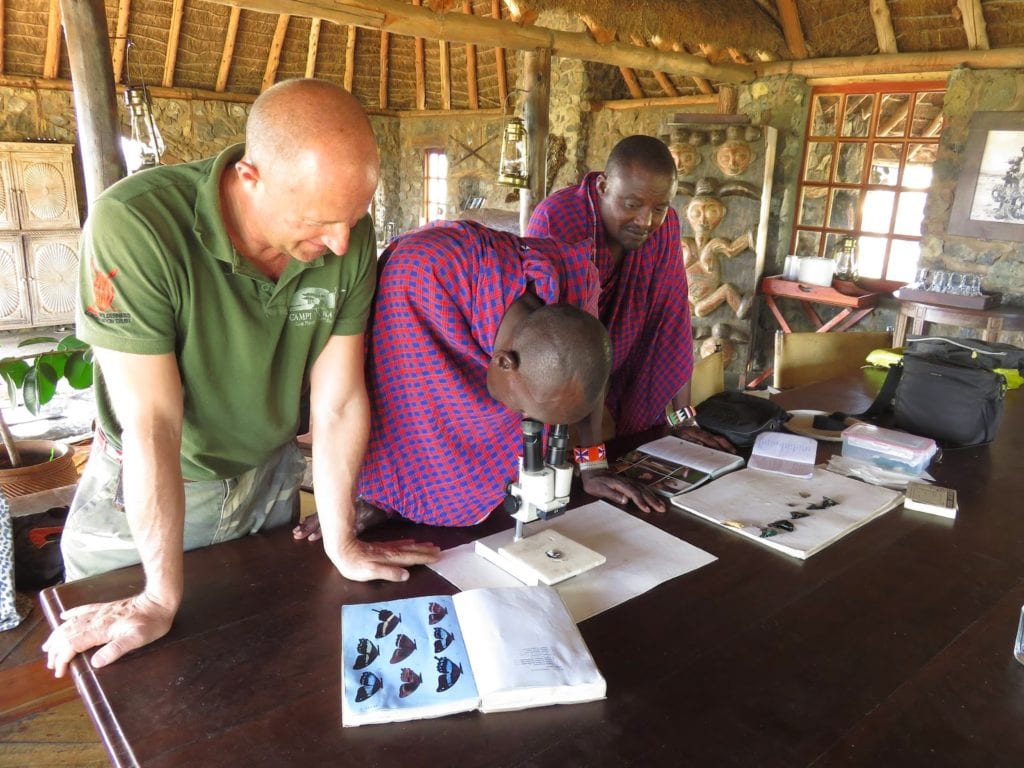Luca Belpietro - environmentalist
Community co-ordinator and founder MWCT
Luca Belpietro - community activist
Community enhancer | Leader | environmentalist
My father was a hunter, says Italian-born Belpietro, who travelled to Africa with his father frequently in his youth. But his perspective changed as he got older—he wrote his doctoral thesis on wildlife as a natural resource in Kenya and later moved to Africa for good. “Living in the wilderness took away any interest in hunting,” he says.
It really began in the 60’s, when a 4 year old Luca wanted to impress his dad and slept all alone in a tent in the family Italian vineyards. He wanted to prove he could go on safari! Luca came to Kuku Group Ranch, the Maasai 283,000 acres reservation where Campi ya Kanzi is, in 1975 when he was just 11 years old. 20 years later he came back with his then girlfriend; now wife, Antonella.
Together they engaged the local Maasai landlords and formed a unique partnership, creating the community owned lodge, Campi ya Kanzi.
In 1996 Belpietro, 49, opened Campi ya Kanzi. Located in the Chyulu Hills in Kenya, with views of Mount Kilimanjaro in the distance, the lodge was built and managed with the cooperation and oversight of the local Masai. “The idea was to prove to the Masai community, who are the landlords of these 280,000 acres, that wilderness teeming with wildlife has an economic benefit,” Belpietro says. “Their best bet for the future is maintaining that wilderness and wildlife.” As part of that goal, Belpietro established the Maasai Wilderness Conservation Trust MWCT), which is funded by fees paid by guests at Campi ya Kanzi and helps compensate the Masai for livestock killed by lions, resulting in a tripling of the lion population in the last seven years.
More than 20 years and 3 kids (Lucrezia, born 2002, Jacopo born 2007 and Lorenzo, born 2009) later, this is their home and they share it with Campi ya Kanzi guests. Together with amazing Maasai who with them built the lodge, like Parashi, Matasha, Samson, Pashiet, Lengou… and host the guests with Luca and Antonella.
"I don’t think we are young, or old, because of our age in years. Our ability of remaining young, regardless of our age, is that ability of daring, of feeling that we can pursue our passions, and that it pays off. I was adamant I wanted to create a long term conservation project involving a community."
"As Campi ya Kanzi is a partnership with the local community, by choosing it for your African safari, you will not only enjoy a unique and pristine wilderness and amazing wildlife, but you’ll actively protect them and help the Maasai community."
Belpietro employs almost 300 Masai, led by Samson Parashina (who started as a waiter and is now chairman of the board for the trust), and the foundation supports 7,000 students in the area. “I could not have done what I’ve done without these people. They’re the ones in the field, the ones believing in it,” he says. “In 30 years you probably won’t have the chance to be with tribal people living in a traditional way. This is an opportunity to be in touch with an incredible culture.”
“Being eco-friendly isn’t about awards. We want to ensure the Maasai have the best choice of a protected healthy environment and economic income is a sustainable way, for years to come ” — Campi ya Kanzi founder, Luca Belpietro.
Courtesey maasai.com/
Camp ya Kanzi and MWCT
Campi ya Kanzi was built in 1996 as a partnership with the Maasai of Kuku Group Ranch to promote environmental conservation and sustainable community development through ecotourism. The Maasai landowners benefit directly from tourism through employment and conservation fees.
Campi ya Kanzi’s founder, Luca Belpietro, wrote his thesis in economics on “Wildlife as a Renewable Resource in Kenya: Environment Conservation and Sustainable Development.”
Campi ya Kanzi is the result of that thesis: a joint venture with the Maasai of Kuku to transform their wilderness and wildlife into economic resources that generate dividends for the community.
Human population in Kenya has increased tremendously in the last century, from just less than 1,300,000 in 1900 to nearly 44,000,000 in 2013, contributing to increase poverty and malnutrition.
This unsustainable growth has put tremendous pressure on both the wilderness and the wildlife.
Maasailand is, traditionally, land where human beings and wildlife have co-existed. In fact the most visited National Parks in East Africa were Maasai land and are surrounded by Maasai land (Serengeti, Ngorongoro, Maasai Mara, Amboseli). With 90% of the wildlife population of Amboseli National Park living in private Maasai land for part of the year, it is crucial that Maasai landlords earn economic benefits by protecting the wilderness status of their land.
That is our model of ecotourism: to make sure wilderness with thriving wildlife generates income for the Maasai landlords, to ensure the land where they have lived for hundreds of years, is protected for the generations to come.
Ultimately the protection of the environment, with its three aspects –wilderness, wildlife and culture – is what Campi ya Kanzi stands for.
We believe in the concept of “Payment for Ecosystem Services.” Campi ya Kanzi visitors who come to enjoy the Kuku wilderness contribute a $116 conservation fee per person per day. The funds support Wildlife Pays, an MWCT compensation program that reimburses Maasai herders for livestock killed by predators. In return, the Maasai promise not to retaliate by hunting the predators. Although the Maasai once saw lions and leopards as a nuisance, they now value these animals for the interest and income they generate among tourists.
We also believe that the Maasai community needs an advocate. In 2000, Luca and his wife Antonella founded the Maasai Wilderness Conservation Trust (MWCT). The Trust has branches in Kenya, the United States, and Italy. The President of the U.S. branch is Edward Norton: United Nations Ambassador for Biodiversity (appointed by UN Secretary General Ban Ki Moon in 2010), founder of Crowdrise.com,member of the President Obama Committee for Arts and Humanities and acclaimed filmmaker (actor, producer, writer, and/or director for more than 30 films; nominated for three Academy Awards for acting).
Campi ya Kanzi has received ample recognition for its eco-friendly and socially responsible practices and the first eco-lodge to be Gold Rated by Ecotourism Kenya, first to be 100% solar.
The Maasai Wilderness Conservation Trust (MWCT) works to protect the legendary ecosystems and astounding biodiversity of East Africa through conservation that directly benefits local Maasai communities.
The world increasingly relies on many traditional communities like the Maasai to protect the ecological treasures that exist within the land that they own. But the incredible wilderness and wildlife of Africa’s grasslands and the famous culture of the Maasai people both face daunting threats to their long-term survival. The fate of both rests with the Maasai themselves as they work to figure out how to benefit from their incredible natural resources while preserving them.
That’s what MWCT is all about—a pioneering partnership between professional conservationists, like US Board President Edward Norton, and dynamic Maasai leaders to show that the Maasai community can thrive, not just survive, by managing their ecosystem wisely. MWCT’s efforts are focused on the Maasai communities and landscapes of Kenya’s Chyulu Hills, within the world-famous Amboseli-Tsavo Ecosystem. This is Hemingway’s “Green Hills of Africa”, deep cloud forests on hills over the savannah teeming with wildlife and Mount Kilimanjaro rising out of the plains. The Maasai communities of this area own all of the land between the protected National Parks and within their land lie critical wildlife migration corridors and habitat reserves, forests that are carbon sinks and rivers and springs that supply the fresh water not only to this ecosystem but to more than seven million people in Kenya, including the second largest city.
MWCT funds and operates programs that promote sustainable economic benefits from conserving this ecosystem, creating a cutting edge model of successful community-based conservation.
Source: maasai.com/
UPDATE FOR 2021 including the REDD+ Chyulu Carbon Project
2021 celebrates a new Community-based Trust, which has transformed Conservation in Kenya bringing, with Conservation International, the REDD+ Chyulu Carbon Project, which is protecting 1,000,000 acres of forest and benefitting 9 partners, of which 4 are Maasai Group Ranches. Since its inception the Project sold $12,000,000, to companies such as such as Gucci, Tiffany & Co, Apple, Netflix, United Airlines, Proctor and Gamble..
A new lodge, which is quite unique: Chyulu Club, which is, to our knowledge, the first lodge in Africa to be not only a zero emissions lodge (100% solar, with induction kitchens and electric Land Rovers), but also carbon negative, with an afforestation programme.
The new lodge has room for 12 guests, in 6 luxury tented cottages, but can also be used as a student camp, as Chyulu Wilderness Camp.

